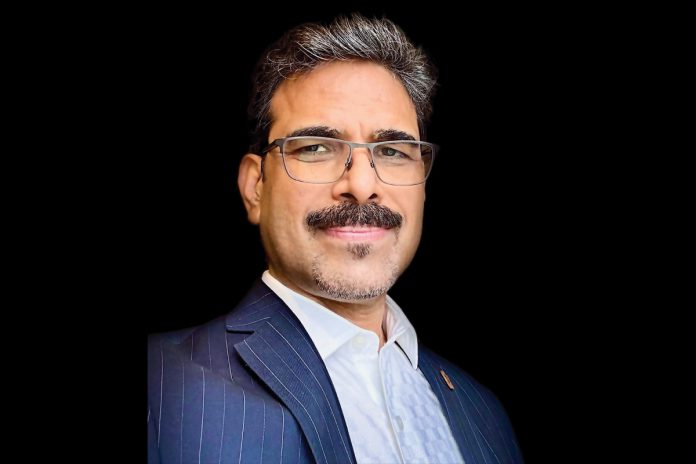Through integration, innovation, and intent, India is building resilient supply chains that can withstand disruption and shocks known and unknown
Words by Karan Karayi
In an era where supply chains are perpetually vulnerable to global shocks—be it geopolitical conflicts, pandemic disruptions, or economic volatility—India is crafting a new blueprint for resilience. At the forefront of this transformation is Dr. Surendra Kumar Ahirwar, Executive Director (Commercial), Ministry of Railways, Government of India. With deep-rooted experience in trade logistics, infrastructure policy, and cross-border integration, Dr. Ahirwar is helping architect a more agile, future-ready logistics ecosystem that can absorb shocks and sustain growth.
“Futureproofing logistics,” he asserts, “is essential to futureproofing India’s global supply chains, especially our export networks.” Recognizing that volatility and uncertainty are now permanent features of global supply systems, Dr. Ahirwar believes the way forward lies in a layered mix of physical, digital, and policy infrastructure—a vision that is being systematically realised through initiatives like PM GatiShakti, the National Logistics Policy (NLP), and the Unified Logistics Interface Platform (ULIP).
India, he notes, is one of the few nations that “checks all the boxes” when it comes to reimagining its supply chain readiness. From industrial corridors and multimodal hubs under GatiShakti to digital public infrastructure that enables seamless trade, the country is undergoing an accelerated transformation.

Building the Backbone: GatiShakti and NLP
The National Logistics Policy (2022), in particular, stands out as a landmark initiative. “There are no true global peers to NLP in its integrated and comprehensive approach,” says Dr. Ahirwar. Unlike piecemeal reforms, the NLP brings together infrastructure development, digitalisation, human resource skilling, and policy coherence under a single umbrella. Its Comprehensive Logistics Action Plan (CLAP) lives up to its name—making India’s logistics reform truly collaborative across ministries, sectors, and states.
Today, over 20 States and Union Territories have adopted their own logistics policies, creating a climate of cooperative and competitive federalism that supports both central and state-level innovation. And it’s working. India’s Logistics Performance Index (LPI) ranking improved significantly, rising to 38th globally—a trajectory Dr. Ahirwar believes will soon place India among the top 25 logistics-efficient nations.

ULIP: The Nerve Centre of Digital Logistics
Central to this transformation is the Unified Logistics Interface Platform (ULIP)—a digital backbone that connects 35 digital systems from various ministries. In effect, ULIP is creating a logistics Digital Public Infrastructure (DPI) that enables data exchange, transparency, and service delivery across the ecosystem.
ULIP acts as a gateway for developers, start-ups, and enterprises to build use cases like shipment visibility, fleet management, and smart procurement. States and Union Territories are also being integrated through APIs or designated domains, ensuring national consistency with local flexibility.
In partnership with the Logistics Databank (LDB), ULIP is improving container logistics in the EXIM sector—a development that has earned recognition in the World Bank’s recent reports. “ULIP is no longer a concept. It’s poised to become India’s first national logistics e-marketplace—a unified platform that could redefine how logistics is bought, tracked, and optimised across the country,” Dr. Ahirwar affirms.

Looking Ahead
Futureproofing logistics, according to Dr. Ahirwar, isn’t just about infrastructure—it’s about integration and intentionality. It’s about embedding resilience at every node of the supply chain through smart policies, transparent systems, and collaborative platforms.
In a world where just-in-time can quickly turn into just-too-late, India’s logistics roadmap offers something rare: a model that is both ambitious and anchored. Thanks in part to visionaries like Dr. Ahirwar, India’s logistics ecosystem is not only catching up with global standards, but equally setting a benchmark of excellence for others to live up to.


